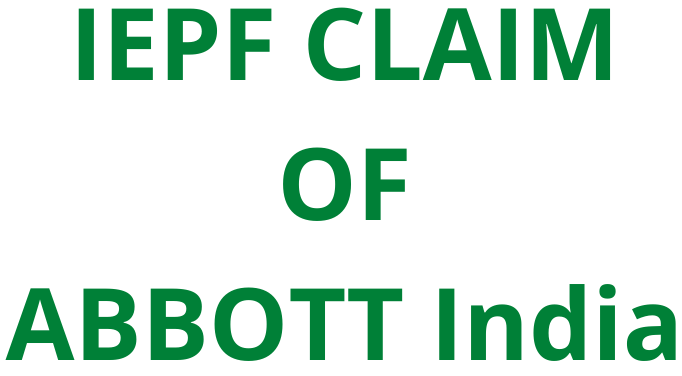Terms & Conditions – Share Samadhan Limited
1. Acceptance of Terms
Please read these Terms and Conditions (collectively "Terms") carefully before accessing or using the website www.sharesamadhan.com or any affiliated or ancillary or third-party services from the website. These Terms, along with the Privacy Policy and any other policies as may be notified/displayed/published on the said website and collectively referred to as Agreement, constitute a valid contract between you and Share Samadhan Limited and/or its affiliates (hereinafter "Company").
Users agree to be bound by these Agreement as posted on the website www.sharesamadhan.com from time to time. These Terms are an electronic record under applicable electronic transactions laws and will not require any physical, electronic, or digital signature by the Company or Users. If you do not agree with the above, please do not access the website or use any of the services or information provided therein.
2. Nature of Services
Share Samadhan provides consultancy and execution support to recover and retrieve unclaimed investments, including but not limited to:
- Physical shares, IEPF claims, transmission, duplicate shares
- Mutual funds, provident funds, insurance, bank accounts
- Legal recovery, litigation support, and wealth protection
All services are executed within the legal and regulatory framework, in coordination with concerned authorities, RTAs, companies, or government bodies on a best effort basis. Services also include any other services that may be added from time to time as per the discretion of the Company. The Company reserves the right to discontinue, temporarily or permanently, any services at this entire discretion.
3. Consultancy Fee Structure
Generally, our fees are success-based, i.e., payable only upon realization of investments, unless agreed otherwise.
- A one-time Mandate Signing Fee may apply, adjusted in the final invoice
- Professional/legal/governmental charges (court/NCLT/gazette etc.) are extra, on actuals
- In case of partial recovery, payments are raised proportionately
- Fee delays may attract interest @ 24% p.a. as per agreement
Without foregoing the generality of the above, the specific agreement signed between the parties shall govern the Consultancy Fee Structure and payment terms. Company may require payment of expenses and fees in advance, depending on the facts and circumstances of each case.
4. Client Obligations
Clients must:
- Provide accurate and truthful documents and information
- Inform Share Samadhan immediately upon recovery of assets in their demat/bank account
- Not pursue the same mandate with any third party once engaged with Share Samadhan
- Participate in any legal or physical presence requirements, if needed
- Undertake to provide surety or complete any other requirement, without demur or delay
- Not to sell or part with the investment / money retrieved by Share Samadhan, unless all the outstanding bill raised by Share Samadhan are duly paid
- Be fully involved, available and not not unduly delay any processes
5. Refund Policy
There is no refund of the mandate fee or any other paid charges unless explicitly stated in writing in the Consultancy Fee Agreement.
6. Limitation of Liability
The Company is not liable for delays arising from third-parties or government authorities or others. Services are provided on an as-is basis and are not dependent on actions by third parties or government authorities or others and Share Samadhan is not responsible for their actions.
Specifically, the Company shall not be liable for: any injury, loss, claim, or any direct, indirect, incidental, punitive, special, or consequential damages of any kind, including, without limitation, any financial losses, loss of data, replacement costs, or any similar damages, whether based in contract, tort, strict liability or otherwise, arising from the use of the Company's services.
The Company may provide the user with the access to third party tools or links or information. Access to such tools on an "as is" and "as available" basis without any warranties, representation or conditions of any kind and without any endorsement. The Company is not responsible for and does not endorse or accept any responsibility for the availability, contents, products, services or use of any third party site, any website accessed from a third party site or any changes or updates to such sites. These linked sites are only for the user's convenience and therefore the user understands that he/she accesses them at their own risk. The user acknowledges that they shall bear all risks associated with access to and use of content provided on a third party site and agree that the Company is not responsible for any loss or damage the User may incur from dealing with such a third party site.
Notwithstanding the foregoing, the Company's total liability is limited to the total fees paid by the client and received by the Company. The Company shall not be liable for indirect, incidental, or consequential losses, including but not limited to loss of profits, goodwill, or data.
7. Disclaimers and Warranties
To the fullest extent permissible under applicable law, the Company expressly disclaims all warranties of any kind, express or implied, arising out of its services, including warranties of merchantability, fitness for a particular purpose, satisfactory quality, accuracy, title and non-infringement, compatibility, applicability, usability, appropriateness, and any warranty that may arise out of course of performance, course of dealing, or usage of trade. Users accept all responsibilities for any consequences arising out of the use of the Company's services.
8. Intellectual Property
All content on this site (texts, graphics, logos, tools) is owned by Share Samadhan. No part may be reused or republished without written consent. Unauthorised adoption, copying, modification, use, or publication of these marks is strictly prohibited. Users must not alter the paper or digital copies of any materials printed or downloaded from the website in any way. Furthermore, users must not use any illustrations, data, information, photographs, video or audio sequences, or graphics independently of their accompanying text. Any use of materials requires obtaining an explicit license from the Company. All rights are hereby reserved by the Company.
9. Jurisdiction & Arbitration
All disputes or claims arising out of or relating to this Agreement shall be referred to and resolved by binding arbitration, to the exclusion of judicial courts, conducted by independent online arbitration service providers/arbitration institutions engaged by the Consultant from time to time. Such binding online arbitration shall be conducted by a sole arbitrator who shall be appointed by the online arbitration service providers/arbitration institutions as per its rules. The process of arbitration shall also be conducted in accordance with the rules of the independent online arbitration service providers/arbitration institution. Either party may request for appointment of an impartial arbitrator by contacting the online arbitration service providers/arbitration institution through the website of the Consultant or any other means as may be specified from time to time. The juridical seat and venue of arbitration shall be at New Delhi and the courts of New Delhi shall have exclusive jurisdiction for any applications arising out of the arbitration. The provisions of this Agreement shall be governed by and construed in accordance with Indian law. The costs of arbitration shall entirely be borne by the party in default and shall be paid in accordance with the rules of the online arbitration service providers/arbitration institution. A decision given by the sole arbitrator shall be binding under the Arbitration and Conciliation Act, 1996.
As on date, the Company has empanelled the Centre for Alternate Dispute Resolution Excellence, Bengaluru (CADRE ODR), 2nd Floor Shanmuga Arcade, 39/1 NGEF Lane Binnamangala First Stage Indiranagar, 1st Stage Bengaluru 560 038, (https://www.cadreodr.com), resolve@cadreodr.com, +91 80884 16909 as an online arbitration service providers/arbitration institution for this Dispute Resolution Clause.
10. Amendment
The Company maintains the unilateral right to update, change, or replace any part of this Agreement with or without any notification. Such modifications will be made effective immediately upon their publication on the Platform. This provision allows the Company to adapt its terms to evolving business practices, technological advancements, or changes in legal requirements.
It is the explicit responsibility of all users to periodically review this page for any changes. A user's continued engagement with the Company or access to the website subsequent to the posting of any amendments signifies their full acceptance of those changes.
11. Privacy, Collection & Use of Data
The Company may collect directly or through any third party any personal information of the user, technical data, usage patterns, and any other such information in accordance with the privacy policy and applicable laws. The Company represents that such information shall be used only to enhance user experience, products and improve the services.
The Company may be directed by law enforcement agencies to disclose any personal information of the user, or any other data as may be required under law for any investigation or any other legal purposes. Users unequivocally agree and consent to any such disclosure of data and information by the Company. Use of the website and services implies acceptance of our Privacy Policy.
12. Grievance Redressal
In case of any grievance please send an email to the Company's Grievance Officer, CS Pragya Bhansali, by sending an email to info@sharesamadhan.com. The registered address of the Company for all grievance is as below:
SHARE SAMADHAN LIMITED, (CIN U67190DL2011PLC229303), B-35, LOWER GROUND FLOOR, SOUTH EXTENSION, PART-2, NEW DELHI, Delhi, India - 110049.





